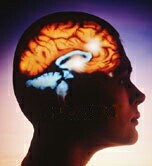Successful phase 1 clinical trial without toxic effects for one such molecule, HIgM22
TUESDAY, Sept. 22, 2015 (HealthDay News) — Naturally occurring monoclonal antibodies show potential for treatment of neurologic diseases, according to a review published online Sept. 21 in JAMA Neurology.
Bharath Wootla, Ph.D., from the Mayo Clinic in Rochester, Minn., and colleagues reviewed the role of monoclonal, naturally occurring antibodies (NAbs) as novel therapeutic molecules for neurologic disorder treatment.
The researchers note that injury such as trauma, ischemia, infection, inflammation, and neurodegeneration results in irreversible central nervous system (CNS) damage. Such injury often results in a pervasive inhibitory microenvironment, which can prevent regeneration. Identifying molecules with high potency in animal models is a common targeted drug delivery strategy. However, approaches frequently fail in the clinical setting due to lack of efficacy in human disease or high incidence of toxic effects. Identification of NAbs in humans is an alternative approach; these therapeutic molecules have potential physiologic function without toxic effects. Recombinant, autoreactive, natural human immunoglobulin M (IgM) antibodies directed against oligodendrocytes or neurons were developed, which had therapeutic potential for CNS repair. A successful phase 1 clinical trial was performed with one of these molecules, recombinant HIgM22, which was directed against myelin and oligodendrocytes with the goal of promoting remyelination in multiple sclerosis, with no indication of toxic effects.
“This class of antibodies represents a unique source from which to develop a new class of disease-modifying therapies,” the authors write.
Patents for antibodies that promote remyelination and CNS repair are issued and owned by the Mayo Clinic.
Copyright © 2015 HealthDay. All rights reserved.








